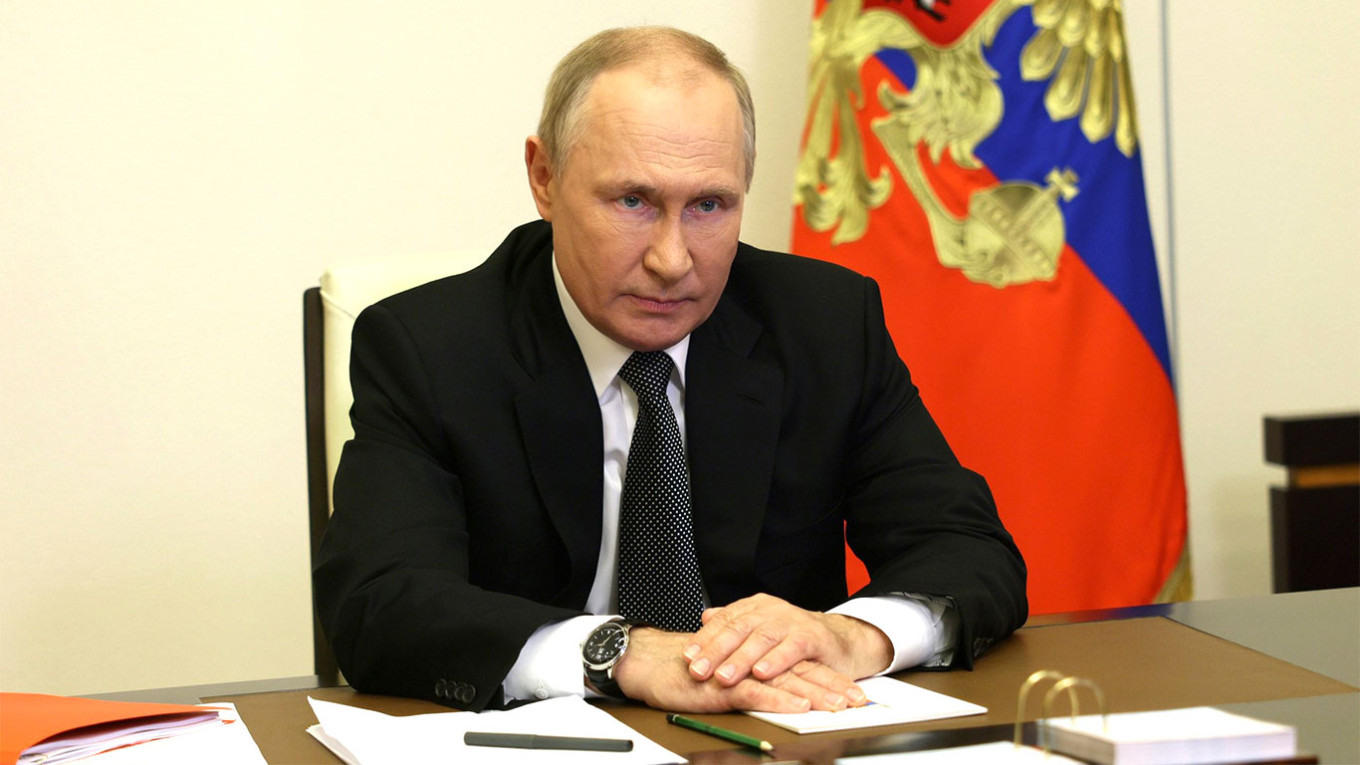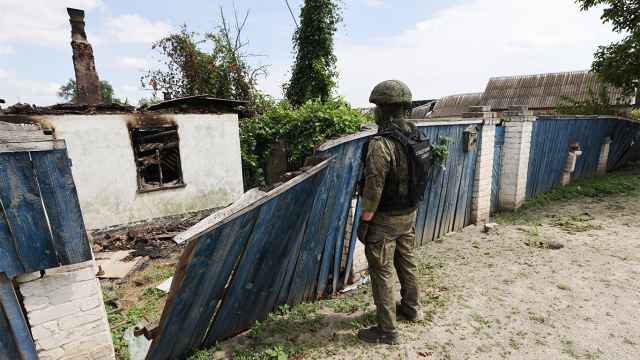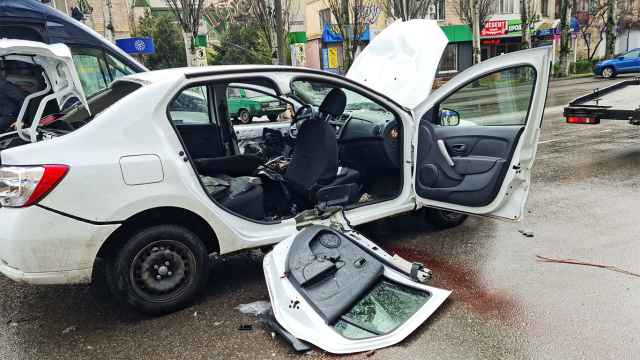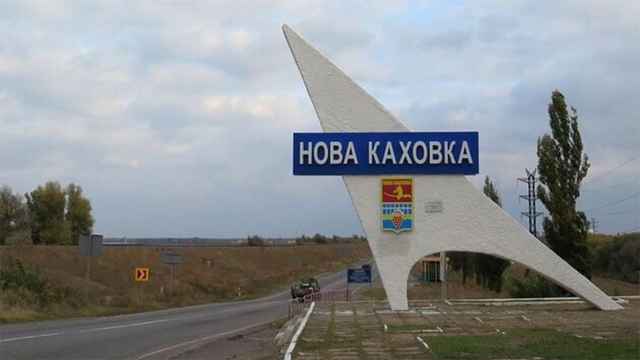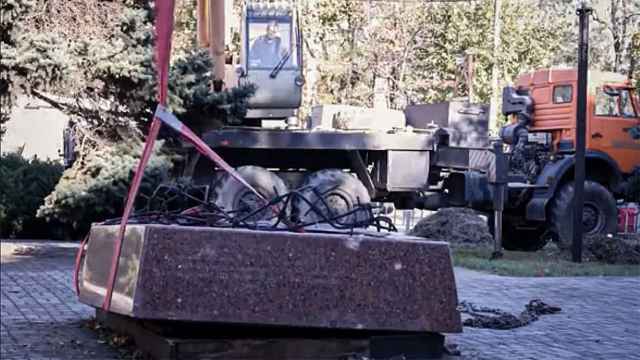Martial law entered into force in the four Ukrainian regions that Russia recently claimed to have annexed early Thursday — just hours after President Vladimir Putin had declared the measure the previous day.
While making his announcement, the Russian leader signed a separate decree introducing varying “response levels” across the country’s regions as well as the Kremlin-controlled Crimean peninsula.
But what does martial law really mean for the Ukrainian territories occupied by Russia? How will life inside Russia and in Crimea change amid the introduction of the “response levels”?
Who is affected by the decrees?
Putin’s decree Wednesday marks the first-ever introduction of martial law in modern Russian history, though its provisions are — for now — only fully applicable in the de facto Kremlin-controlled Ukrainian regions of Donetsk, Luhansk, Zaporizhzhia and Kherson.
Russia claims to have “incorporated” the four regions into the federation following disputed referendums in September. This paved the way for introducing the special regime that, according to Russian law, can only be enacted in the event of “aggression or a direct threat of aggression against the Russian Federation.”
What does martial law entail?
As it stands, Russia’s martial law gives a wide-ranging set of additional powers to the government, including the ability to seize privately held property and assets and unrestricted oversight of private communications.
Kremlin-backed authorities in the four Ukrainian regions can also order the forced evacuation of residents, restrict entry and exit to their territories, and introduce curfews and other restrictions on free movement. Local law enforcement authorities now also have the power to detain anybody without charge for up to 30 days, as well as to detain any citizen of a country deemed to be at war with Russia.
Ukrainian presidential advisor Mykhailo Podolyak called the introduction of martial law in the occupied territories "a pseudo-legalization of looting of Ukrainians’ property."
"This does not change anything for Ukraine: we continue the liberation and de-occupation of our territories," Podolyak wrote in a Twitter post Wednesday.
What are the "response levels" introduced in Russia’s regions?
Another decree signed by Putin on Wednesday introduces four “response levels” across Russia’s regions and annexed Crimea. The change, according to the Russian president, was “necessary to give additional powers to the leaders of all Russian regions.”
While the martial law introduced in the occupied Ukrainian regions constitutes the highest response level, the special regime introduced in Crimea and the six Russian regions directly bordering Ukraine is the third most severe.
Other regions of Russia’s Southern and Central federal districts, including the capital Moscow, were ascribed a “high preparedness level,” while the rest of the country will be living in the state of “basic preparedness” until further notice.
What do these “levels” actually mean?
“In practice, this means that the closer [the region] is to the frontlines, the more difficult the situation is and the more they want to have their hands freed,” political analyst Ivan Preobrazhensky told The Moscow Times.
Among others, the authorities in the regions bordering Ukraine and Crimea now have the right to forcibly relocate residents to “safe regions,” limit the movement of transport and introduce special security measures at critical infrastructure sites.
In Moscow and other central and southern areas with a “high preparedness level,” the authorities now have a broadly similar wide-ranging oversight of law and order and far-reaching security powers.
Although the system crafted by the Kremlin differentiates various danger levels and regions, Crimea and the areas of southern and central Russia specified in the decree will effectively be living under a partially implemented martial law, according to Preobrazhensky.
What is actually happening in the regions?
Moscow Mayor Sergei Sobyanin said Wednesday that while the Russian capital plans to increase security around critical infrastructure in accordance with the new law, Muscovites are unlikely to notice any significant changes to their daily lives.
“I must say that at present no measures are being introduced to limit the normal rhythm of the city's life,” said Sobyanin.
Similar sentiments were expressed by a handful of other regional leaders, including Vasily Golubev, the governor of the Rostov region, which borders Ukraine.
“I emphasize that there are no special restrictions for citizens,” Golubev wrote on his official Telegram channel shortly after the decree was issue.
What's next?
Most commentators agree that the extension of martial law to the rest of Russia cannot be ruled out.
“They are slowly teaching people how to live under martial law,” said Preobrazhensky. “It will come to everyone, but different regions are offered different amounts of time [to prepare].”
The immediate consequences of these legal changes, however, will likely involve even harsher punishments for those violating Russia’s strict wartime censorship laws, he said.
A Message from The Moscow Times:
Dear readers,
We are facing unprecedented challenges. Russia's Prosecutor General's Office has designated The Moscow Times as an "undesirable" organization, criminalizing our work and putting our staff at risk of prosecution. This follows our earlier unjust labeling as a "foreign agent."
These actions are direct attempts to silence independent journalism in Russia. The authorities claim our work "discredits the decisions of the Russian leadership." We see things differently: we strive to provide accurate, unbiased reporting on Russia.
We, the journalists of The Moscow Times, refuse to be silenced. But to continue our work, we need your help.
Your support, no matter how small, makes a world of difference. If you can, please support us monthly starting from just $2. It's quick to set up, and every contribution makes a significant impact.
By supporting The Moscow Times, you're defending open, independent journalism in the face of repression. Thank you for standing with us.
Remind me later.


